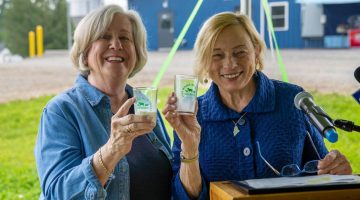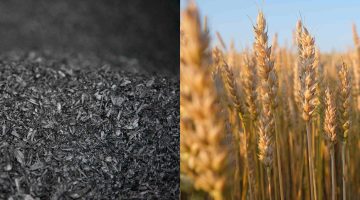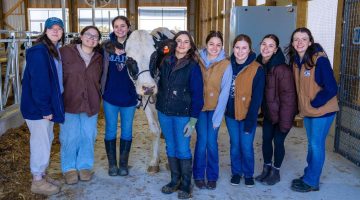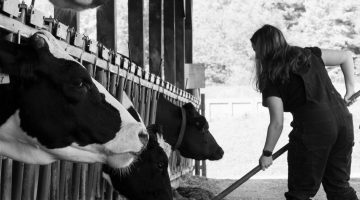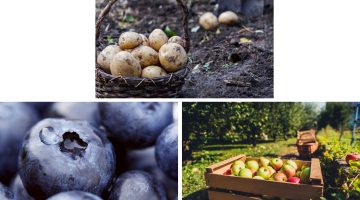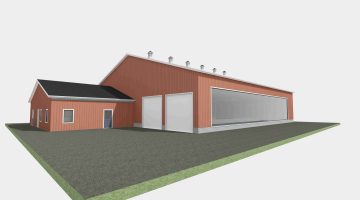Maine kicks off Dairy Month at Witter Farm to celebrate industry advances
The Maine Department of Agriculture, Conservation and Forestry and Gov. Janet Mills launched Dairy Month on June 6 at the University of Maine’s Witter Farm, uniting dairy farmers, 4-H students, researchers, state and local leaders and industry partners. Together, and with a celebratory milk toast, they highlighted the vital role of dairy in Maine’s agricultural […]
Read more
